The race is on for a new Labour leader. Here are the favourites and here’s where they stand on queer rights
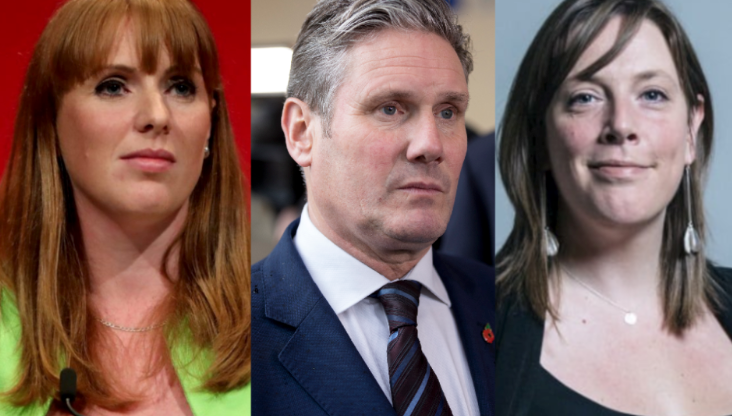
Angela Rayner, Kier Starmer and Jess Phillips are among the frontrunners for Labour leader
The UK is facing five more years of Conservative government after prime minister Boris Johnson won the general election by a landslide with 364 seats.
It is the second general election that Labour leader Jeremy Corbyn has lost, and a devastating defeat for the party. Corbyn confirmed in the early hours of Friday morning that he would “not lead the party” in any future election campaign.
He said he intends to remain in post during a “period of reflection”, but speculation over who will replace him has already begun.
Potential candidates for Labour leader include Emily Thornberry, Rebecca Long-Bailey, Kier Starmer, Angela Rayner, Jess Phillips, and Yvette Cooper. Here’s what that might mean for LGBT+ rights in the UK.
Emily Thornberry.
The shadow foreign secretary is a strong supporter of LGBT+ equality, in particular trans rights.
When Labour faced a wave of resignations in 2016 over its refusal to exclude trans women from its women-only shortlists, she defended the party’s decision and urged restraint as the debate became aggressive.
“What I have learned from feminism is there are people who are marginalised and people who are treated badly, and the feminist movement is big enough,” she said. “We’re big enough and big-hearted enough, and if someone believes that they were born as a man but they are a woman, we have space.”
Earlier this year, Thornberry took part in demonstrations outside the Brunei-owned Dorchester hotel in protest at laws which punished gay sex with stoning. She also wrote to the foreign secretary to pressure the government to “take a leading role in condemning these laws and calling for strong action to be taken”.
The Labour MP gave an impassioned speech for LGBT+ rights at the PinkNews summer reception, calling for the UK to demand Commonwealth countries abolish anti-gay laws or be expelled.
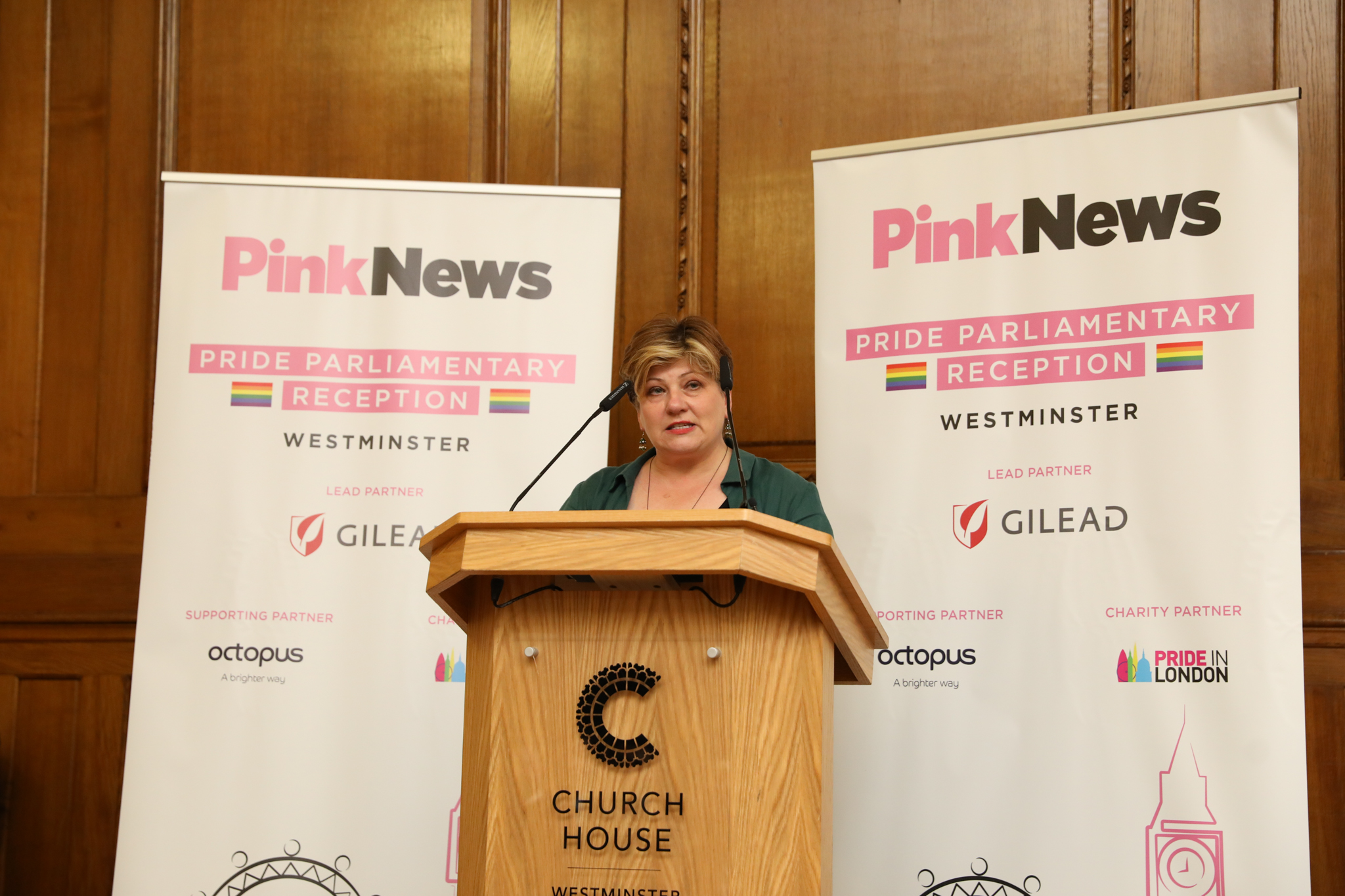
Emily Thornberry speaking at the PinkNews event in Westminster
Yvette Cooper.
Yvette Cooper has been MP for Normanton, Pontefract and Castleford since 2010, having served as the MP for Pontefract and Castleford since 1997. She’s also served as shadow home secretary and is currently chair of the Home Affairs Select Committee.
She’s regularly spoken in support of LGBT+ rights at the PinkNews Awards, and has called on parliament to better represent the country by being more open to LGBT+ MPs.
In 2015, she led an early attempt to push parliament to introduce compulsory LGBT-inclusive sex education to the curriculum. She told PinkNews she was “appalled” that the government was dragging its feet on the issue, noting the level of homophobic bullying in schools.
Rebecca Long-Bailey.
Rebecca Long-Bailey has been shadow secretary of state for business, energy and industrial strategy since February 2017.
She’s got a broad range of experience, having worked in a pawn shop, call centres, a furniture factory, and as a postwoman and a solicitor before being elected MP for Salford and Eccles in 2015.
Her focus in previous years has been on a “green industrial revolution”. Although she hasn’t said much on LGBT+ issues, she’s voted consistently in favour of LGBT+ reforms, same-sex marriage, and laws that promote equality and human rights.
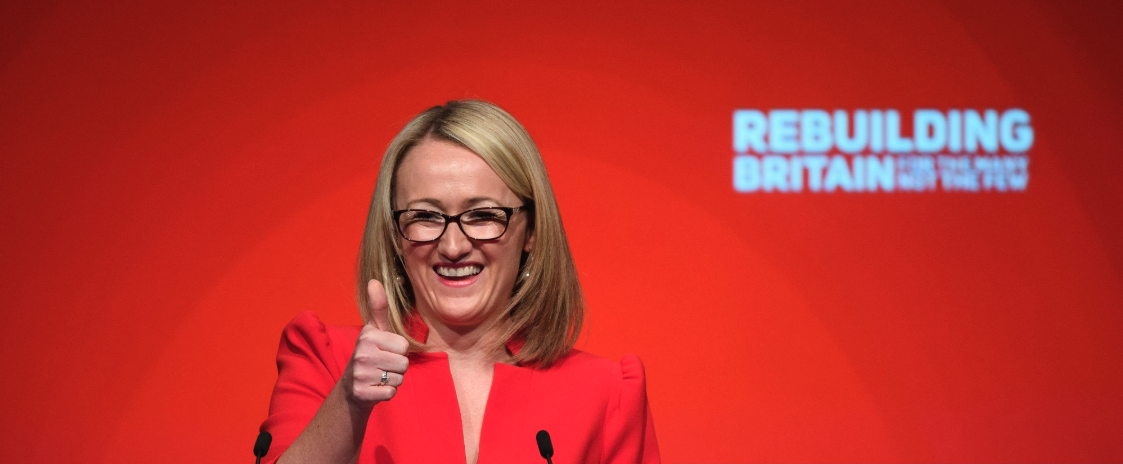
Rebecca Long-Bailey at the 2018 Labour Party Conference (Leon Neal/Getty)
Keir Starmer.
Another PinkNews Awards guest of honour, the shadow Brexit secretary formerly worked for the Human Dignity Trust, which challenges Commonwealth laws that penalise people for being LGBT+.
Speaking at the 2019 awards, he described this job as one of his proudest achievements in life.
He also warned that leaving the EU puts human rights protections crucial to LGBT+ people at risk, saying: “It’s shameful that Theresa May’s government singled out the EU Charter of Fundamental Rights as the only EU provision we are not prepared to convert into UK law on departure, just when we need it most.”
During his time as an MP he’s voted consistently in favour of LGBT+ rights and strongly battled for the right for LGBT+ people to serve in the military.
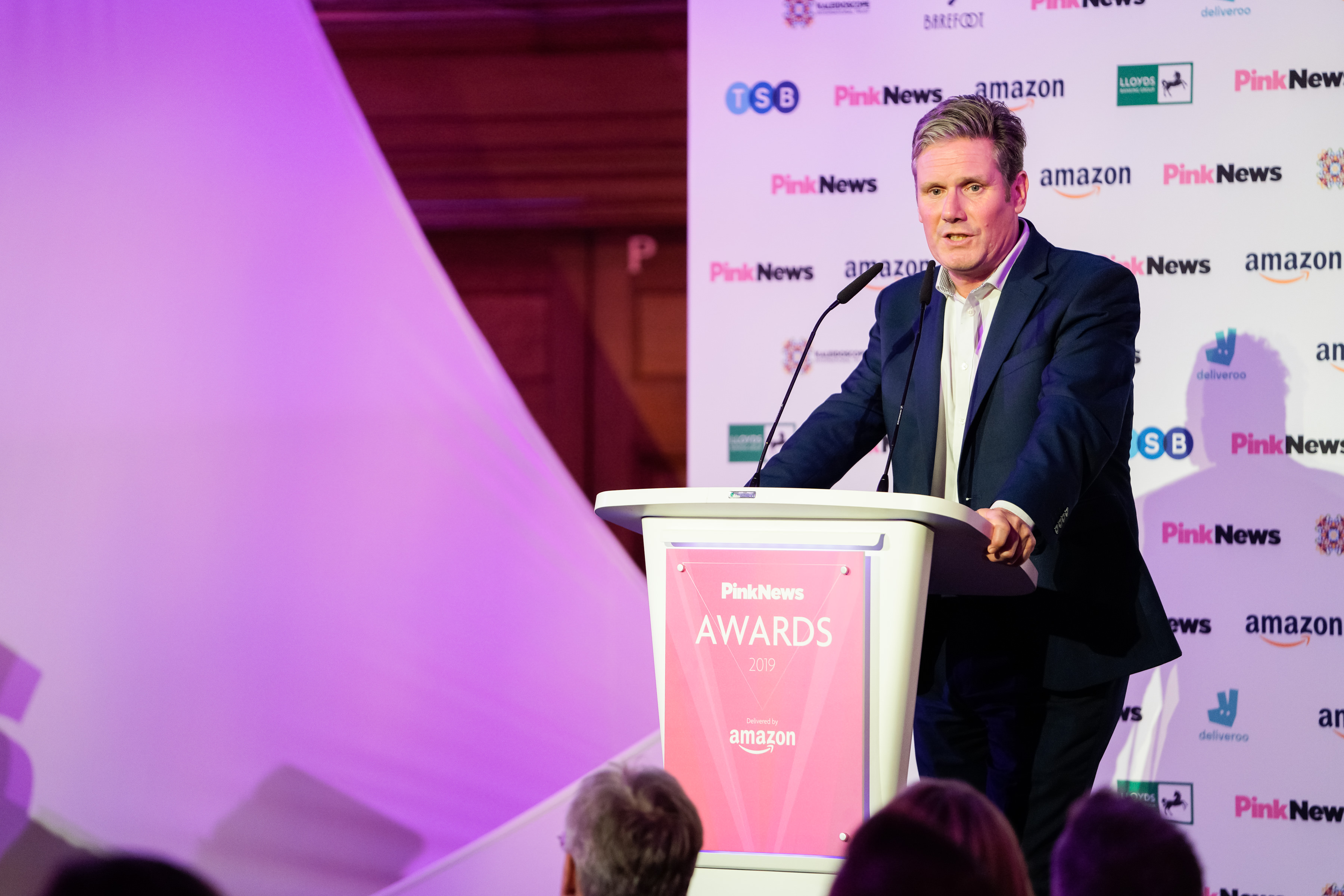
Sir Keir Starmer at the 2019 PinkNews Awards who many say is the favourite to take over as Labour leader (Paul Grace)
Angela Rayner.
Angela Rayner has been shadow secretary of state for education since 2016. She was recently in the news as she condemned Boris Johnson’s “disgusting” comments about single mothers, having once been a teenage single mother herself.
She’s also spoken in support of LGBT-inclusive education, warning in March of the “incredibly alarming” reports that schools had stopped teaching about LGBT+ rights following complaints by parents. These protests would continue for months, ending with a High Court injunction.
When Birmingham MP Roger Godsiff made “discriminatory and irresponsible” comments in support of the parents’ protests, she reported him to the party’s chief whip. Godsiff was reprimanded and later blocked from standing as a Labour candidate in the election.
She was among the many Labour MPs who strongly urged the House of Commons to vote for compulsory LGBT-inclusive sex and relationships education, which it later did.
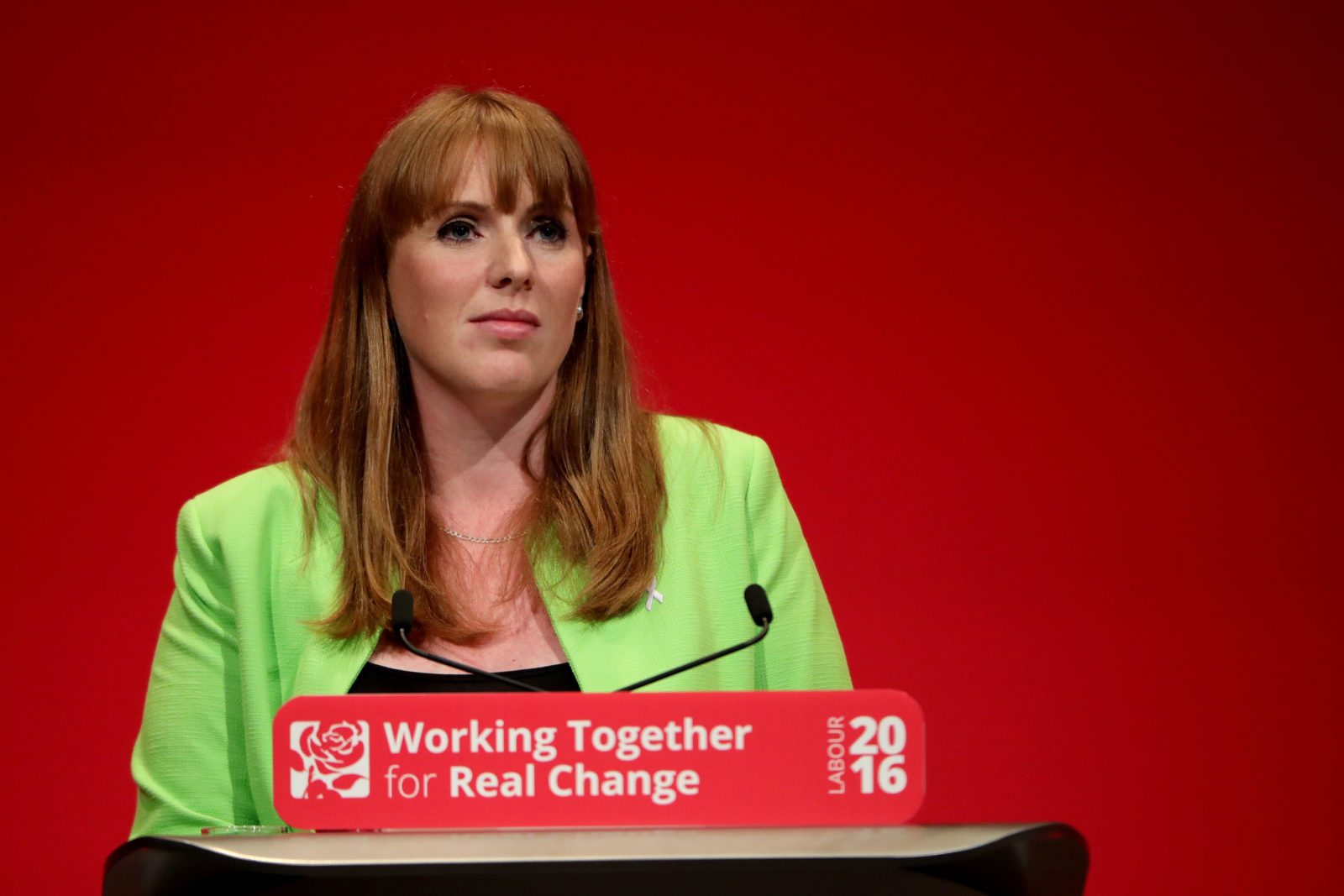
Shadow Education Secretary Angela Rayner on September 27, 2016 in Liverpool, England. Could she be the next Labour leader? (Christopher Furlong/Getty)
Jess Phillips.
Before being elected as MP for Birmingham Yardley in 2015, Jess Phillips worked for Women’s Aid, supporting female victims of domestic abuse. Her childhood ambition was to become prime minister.
Like Angela Rayner, she emerged as one of the most prominent voices for LGBT-inclusive education during the protests outside Birmingham schools earlier this year.
In May she was filmed facing down one of the protest leaders, telling him: “I don’t agree that you get to pick and choose which equality you can and can’t have.” The heated exchange went viral online.
Philips also called for the implementation of an “exclusion area” to protect the children attending the school from the protests, which still stands despite protesters’ repeated attempts to have it struck down.
In the face of targeted abuse from some members of the public, she continually stood up for the LGBT+ community while her fellow Birmingham MP Roger Godsiff was doing the exact opposite.
She succinctly summed up her support for the LGBT+ community by tweeting: “I’m not gay, I’m just not a bigot.”
You cannot be half equal. Equality means Muslims leading their lives without facing Islamophobia, and LGBT kids having the right to understand themselves and grow up without bullying. @jessphillips is right to stand up for both.pic.twitter.com/uj7tceqvSY
— Benjamin Butterworth (@benjaminbutter) May 20, 2019

